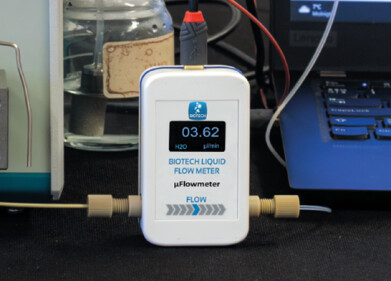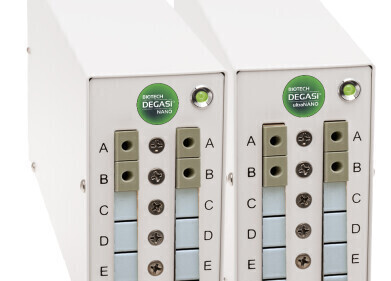HPLC, UHPLC
Improving Prostate Cancer Detection - Chromatography Explores
Dec 14 2020
Prostate cancer is one of the most diagnosed cancers in the UK. Over 47000 men are diagnosed with prostate cancer every year in the UK, with more than 11500 – or one man every 45 minutes – dying from prostate cancer according to the figures from Prostate Cancer UK. As with most cancers, the risk of developing prostate cancer is thought to be influenced by many factors: age, genetics, and exposure to risk factors. But prostate cancer is not clearly linked to any preventable risk factors.
There is no single test for prostate cancer. Urine samples, blood tests and prostate examination are used to help assess the risk of the likelihood of you having prostate cancer alongside the other factors. One of the key tests is the PSA blood test which detects the levels of prostate-specific antigens. But the standard test does not distinguish between benign prostate pathologies and prostate cancer. But recent research reported in the journal Scientific Reports suggests that this could change – and it is thanks in part to chromatography separating out the serum.
PSA detects prostate problems, not just cancer
The PSA test measures the amount of prostate specific antigen in your blood. PSA is a protein produced by normal cells in the prostate. But it is also produced by prostate cancer cells ands a raised PSA level could indicate prostate cancer. Unfortunately, there are many other conditions that could give rise to an increased PSA level in the blood.
It is normal to have a small amount of PSA in the blood. And as we age and get older the prostate produces more PSA. A significant increase could indicate prostate cancer, or it could indicate any one of several other conditions including an enlarged prostate or prostatitis (an infection or inflammation of the prostate gland). So, a raised PSA does not necessarily indicate prostate cancer (PCa).
Chromatography targets specific glycoforms
As stated earlier, current PSA testing is non-specific for prostate cancer. To confirm a cancer diagnosis, an invasive procedure such as a biopsy must be undertaken which can cause side effects in the patient. To remove the need for an invasive procedure, a team of researchers from Spain and Ireland analysed the differences in PSA glycosylation between benign prostate alterations and aggressive prostate cancers.
They used ultra-performance liquid chromatography to analyse the differences in the PSA glycosation pattern. The use of UPLC to analyse biological samples is discussed in the article, Evaluation of Mixed-Mode Ion Exchange SPE for the Extraction of Opioids from Human Urine by UHPLC-MS/MS. They report that the identification of these main PSA glycoforms altered in aggressive PCa opens the way to design specific strategies to target them, which will be useful to improve PCa risk stratification.
Digital Edition
Chromatography Today - Buyers' Guide 2022
October 2023
In This Edition Modern & Practical Applications - Accelerating ADC Development with Mass Spectrometry - Implementing High-Resolution Ion Mobility into Peptide Mapping Workflows Chromatogr...
View all digital editions
Events
ACS National Meeting - Fall 2024
Aug 18 2024 Denver, CO, USA
Sep 04 2024 Chiba, Tokyo, Japan
Sep 04 2024 University of Warwick, Coventry, UK
Sep 10 2024 Rockville, MD, USA
Plastics Recycling World Expo Europe
Sep 11 2024 Brussels, Belgium














